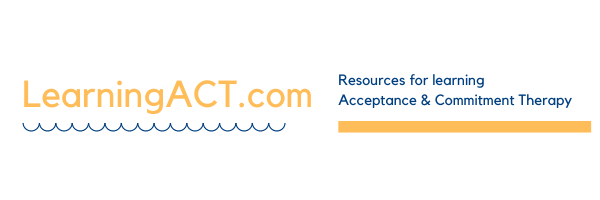Recently, I received this excellent question about using Acceptance and Commitment Therapy with religious clients and thought I’d share it so others could benefit:
I’m learning ACT and am familiar with it’s concepts, but I’m left with a few specific questions in terms of how it can be applied for persons who are deeply religious: who believe it’s not only our personal behaviors that matter in the eternal perspective, but also the thoughts we have. I’m trying to figure out how this modality can be applied such that some level of control or guidance of thought processes may be deemed appropriate. I understand that in ACT, control is defined as excessive or misapplied, but it seems that “control” is deemed inappropriate in general and this is confusing for people who believe that controlling thoughts is important in a religious/moral context. Could someone help me understand how ACT principles could be applied in this context? In the world of ACT, I understand that valued living is endorsed and encouraged, but what about having thoughts that are non-adherent to personal values? I understand that ACT essentially says, “you can have a thought, observe, and not necessarily act upon it” and then go about valued living, but in a religious/moral context, such potentially immoral thoughts demand not just observing but repentance and a change of heart & mind. Can someone help me please understand how to incorporate ACT principles for persons who have this belief system and culture?
